Is Ginger Ale Good For You? 8 Potential Health Benefits
This wonder drink is a one-stop solution to manage heart and digestive issues.
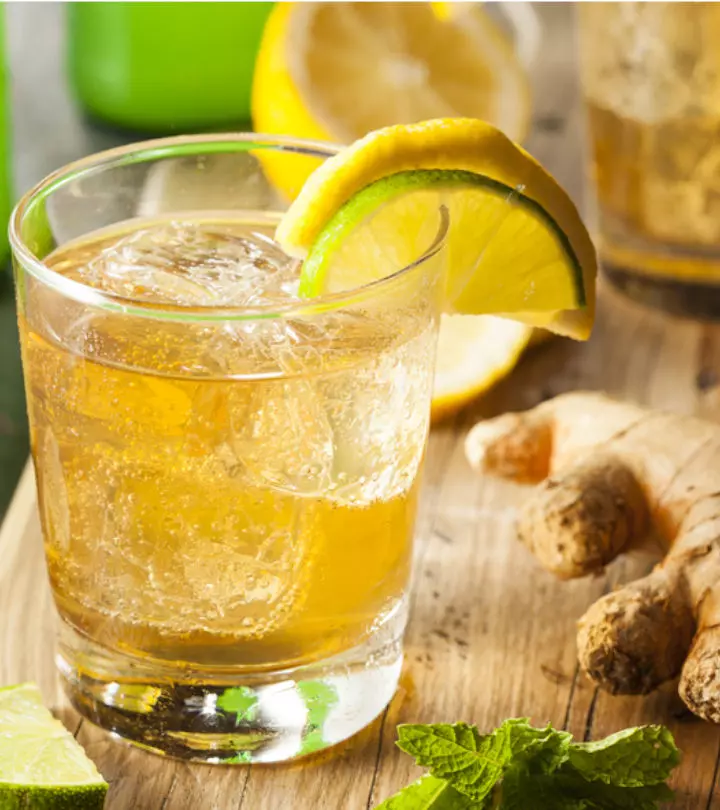
Image: Shutterstock
Ginger ale is flavored with ginger (made of ginger and ginger bugs). It is a popular carbonated drink that has been around for a long time. But is ginger ale good for you? It is! Ginger ale benefits are becoming more prominent only in recent times. The beverage seems to have important health benefits, though it has some disadvantages too. You may consume ginger ale as it is or as part of a cocktail. In this article, we will understand more about this beverage in detail. Keep reading.

 Know Your Ingredient: Ginger Ale
Know Your Ingredient: Ginger AleWhat Is It?
A light yellow carbonated drink made from fermented water, fresh ginger root, and sugar.
What Are Its Benefits?
It can help with migraine, morning sickness, and digestion.
Who Can Consume It?
Anyone can drink ginger ale except people on blood-thinning medication.
How Often?
You can drink 1 glass of ginger ale daily.
Caution
Excess consumption may cause bloating, diarrhea, weight gain, and gas.
In This Article
What Is Ginger Ale?
Ginger ale is a popular drink, and there seem to be many doubts regarding this beverage. Is ginger ale a soda? Is ginger ale good for you? Also, what does ginger ale help with, or what are its side effects? Hence, we’ve dedicated the next few sections to clearing all your queries.
Ginger ale is a type of soda infused with the flavor of ginger. This beverage traditionally consists of fresh ginger root, sugar, and other flavorings made with fermented water and microbial cultures (yeast or ginger bugs). Ginger ale uses fermented ginger to make it fizzy and beneficial.
Fresh ginger root containing Lactobacillus bacteria and wild yeast can be used to prepare ginger bugs. Ginger ale does not contain caffeine and can be an ideal beverage for anyone who cannot consume caffeine.
Commercial ginger ales contain carbonated water, sugar or high-fructose corn syrup, and an artificial or natural ginger flavor. Alkaline compounds like sodium bicarbonate are also used to neutralize acidity. Ginger ale may also contain preservatives like citric acid, sodium benzoate, and some coloring agents.
 Trivia
TriviaGinger ale is available in different types. We will explore them in the next section.
Key Takeaways
- Ginger ale is a soda that is made with fresh ginger root, sugar, and fermented water.
- It reduces nausea, boosts digestion, and may provide relief from a migraine.
- You can easily make ginger ale at home with fresh ginger, lemon, and club soda.
- Ginger ale may cause certain side effects such as inflammation, diarrhea, and gallbladder issues.
Types Of Ginger Ale
- Regular: This refers to both the ginger ale soda and the traditional fermented ginger ale. The soda variant is typically carbonated water flavored with ginger extract and sweeteners, while the fermented one is made using natural fermentation to create carbonation and enhance the ginger flavor.
- Dry: Dry ginger ale has a spicier or drier ginger flavor due to the way the ginger root is sourced and processed. It has a crisper and less sweet taste compared to regular ginger ale and is often a preferred choice for cocktails and mixed drinks.
- Diet: This version contains no sugars or high fructose corn syrup. Instead, it contains artificial sweeteners, like aspartame, sucralose, or stevia. These help maintain a sweet taste while reducing calories. Diet ginger ale is often chosen by those looking to lower their sugar intake while still enjoying the flavor of ginger.
How is ginger ale different from ginger? Let us understand.
Ginger Vs. Ginger Ale
Ginger has been widely used as a culinary and medicinal ingredient while ginger ale is only used as a soda or soft drink. We have listed the nutritional differences between the two (per 100 grams):
| Nutrients | Ginger | Ginger ale |
Calories | 80 | 34 |
Total Fat | 0.75 | 0 |
Sodium | 13 mg | 7 mg |
Total Carbohydrate | 17.8 g | 8.76 g |
Sugar | 1.7 | 8.9 g |
Protein | 1.82 g | 0 g |
Vitamin D | 0 mcg | 0 mcg |
Calcium | 16 mg | 3 mg |
Iron | 0.6 mg | 0.18 mg |
Potassium | 451 mg | 1 mg |
* All the listed values of ginger and ginger ale are sourced from USDA.
 Trivia
TriviaGinger ale is made of ginger root and other components. While there is no direct research on the health benefits of ginger ale, the ginger it contains may offer certain advantages. Let us explore them in the next section.
Potential Health Benefits Of Ginger Ale
Here is a detailed list of the overall health benefits of ginger.
1. May Help Treat Nausea

Nausea is typically characterized by an uncomfortable sensation occurring in the throat and epigastrium (upper abdomen) that may lead to vomiting. Some studies suggest that ginger consumption may reduce nausea associated with stomach flu, migraine headaches, chemotherapy, and morning sickness (8). This effect could be attributed to the gingerols and shogaolsi The pungent element present in ginger with essential anti-cancer and anti-inflammatory properties. in ginger. The gingerols in fresh and dried ginger rhizomes are the main compounds responsible for their pungent taste. They are known for their medicinal values.
2. May Help Treat Morning Sickness During Pregnancy
Morning sickness is the discomfort associated with pregnancy especially in the first trimester. It is characterized by vomiting, vertigo, and irritability. Research states that ginger may effectively relieve morning sickness (9).
Note: Drink only homemade ginger ale during pregnancy. Avoid store-bought products to prevent side effects.
3. May Aid Digestion
Animal studies show that ginger can effectively stimulate the production of digestive enzymes.
Ginger intake was found to enhance pancreatic lipasei A secretion from the pancreas that acts as a digestive enzyme and helps break down the fat in the food. activity. Additionally, ginger intake could also stimulate trypsin and chymotrypsin – two enzymes that play a major role in digestion.
4. May Help Manage Migraine

Another major health benefit of the ginger in ginger ale could be associated with migraine relief. In a study, using ginger in the treatment of migraines had shown a significant beneficial effect (4). However, more research is warranted in this area.
We have discussed the nutritional profile of ginger ale in the following section. Take a look.
5. May Help Manage Rheumatoid Arthritis
Studies have shown that ginger may effectively help in managing rheumatoid arthritis (5). Ginger could significantly increase the expression of FoxP3 genes and decrease the expression of RORγt and T-bet genes and help manage the condition. However, more research is needed in this aspect.
6. May Exhibit Cardioprotective Effects
Studies have also shown that ginger can effectively exhibit cardioprotective properties. The cardioprotective action of ginger is believed to be associated with its antihypertensive, anti-hyperlipidemiai Agents that reduce high lipid levels in the blood caused by a poor, high-fat diet. It can also be inherited. , and anti-platelet effects (6). More quality studies are needed to better understand the underlying mechanisms.
7. May Relieve Sore Throat
Ginger ale’s anti-inflammatory properties may help ease a sore throat. The shogaol and gingerol in ginger exhibit these anti-inflammatory effects that may help reduce throat inflammation and irritation (7). However, more research is warranted in this regard.
8. May Help Fight A Hangover
Ginger ale may relieve certain hangover symptoms due to its calming effect on the stomach. The carbonation in the ale may help alleviate nausea, while the ginger’s active compounds may help soothe an upset stomach. However, more studies are warranted to support these claims. You may still consume some ginger ale for hangover relief. But ensure you also rest, hydrate yourself, and eat healthy.
Joy, a blogger, recalled drinking ginger ale during her childhood. She calls it an amazing natural remedy for her stomach problems, writing, “When my brother and I were kids, my mom would give us the fizzy ginger ale to help settle an upset stomach. Even as I’ve gotten older, I’ve relied on this remedy from time to time, especially helpful after a fun night of too many beverages (i).”
While the ginger in ginger ale may offer these benefits, they may also depend on the concentration of ginger in the beverage. Hence, consult your doctor to further understand the health benefits of ginger.
We have discussed the nutritional profile of ginger ale in the following section. Take a look.
Nutritional Facts Of Ginger Ale
Ginger ale (100 grams) contains:
- Calories: 34
- Fat: 0 g
- Cholesterol: 0 mg
- Sodium: 7 mg
- Potassium: 1 mg
- Carbohydrate: 9 g
- Protein: 0 g
*All values are sourced from USDA
Diet ginger ale (100 grams) contains:
- Calories: 0
- Fat: 0 g
- Sodium: 6 mg
- Potassium: 2 mg
- Carbohydrate: 0 g
- Protein: 0.1 g
*All values are sourced from USDA
Dry ginger ale (100 grams) contains:
- Calories: 25
- Fat: 0 g
- Sodium: 2820 mg
- Sugar: 6.2 g
- Carbohydrate: 6.2 g
- Protein: 0 g
*All values are sourced from USDA
Preparing ginger ale at home is easy. Here’s how.
How To Prepare Ginger Ale At Home
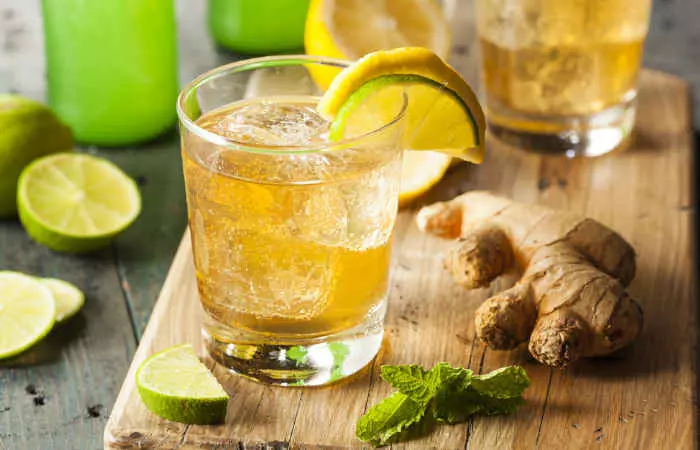
What You Need
- 4 cups water
- 2 cups peeled and chopped fresh ginger
- 3 strips lemon peel, about 4 inches each, yellow parts only
- 1 ½ cups granulated sugar
- 3 quarts club soda, chilled
Method
- Mix the ingredients, except the sugar and club soda.
- Add them to a 4-quart saucepan. Heat the mixture to a boil over high heat. Reduce the heat to medium-low, cover, and simmer for 10 minutes.
- Pour in the sugar, stir constantly, and continue boiling until it is reduced to 3 cups (about 15 minutes).
- Place a fine-mesh strainer over the bowl. Separate the solids from the liquids by adding ginger syrup. The lemon peel should be discarded.
- Let the ginger syrup cool completely before transferring it to a glass container. Make sure the lid is tightly sealed. Chill for at least an hour.
- Prepare each serving by mixing ¼ cup of ginger simple syrup with 1 cup of cold club soda. Pour over the ice. You can sweeten it to your taste with further ginger syrup or sugar.
Here are a few other ginger ale recipes you may want to try.
Diet Ginger Ale
Diet ginger ale is similar to regular ginger ale, though it is free from sugar. An artificial sweetener is added in the place of sugar.
What You Need
- 4 cups water
- 1 cup fresh ginger, peeled and roughly chopped
- 1 cup sweetener
- 1 lemon with grated peel
Method
- Combine the water, ginger, sweetener, and grated lemon peel in a large saucepan and bring to a boil. Once boiled, turn the heat down and simmer for 20 minutes.
- Place in a sealed container, cool completely, and refrigerate for at least two days or longer.
- Add lemon juice and stir well. Strain the syrup and discard the solids.
- Add 2 to 4 tablespoons of syrup in the glass. Top up with soda water or sparkling water and serve chilled.
Dry Ginger Ale
A spicier ginger flavor is imparted to dry ginger ale by using fresh ginger root.
What You Need
- 1 cup fresh ginger peeled and chopped finely
- 2 cups water
- ½ a cup raw sugar
- 1 tablespoon dark brown sugar or molasses
- Lime wedges
- Soda water or sparkling mineral water
- Ice
Method
- Cook ginger in water with a lid on a small pot. Turn the stove off after reaching a boil. Let the ginger steep for 30 to 60 minutes (depending on how strong you want the ginger flavor).
- Return the ginger-spiced water to the pot after straining out the chopped ginger. Add sugar and heat again, stirring until completely dissolved. Turn off the flame and allow the ginger syrup to cool.
- Fill a glass with ice. Add 1 to 2 tablespoons of ginger syrup, lime juice, and soda water.
Ginger Ale Vs. Ginger Beer
Ginger ale and ginger beer contain ginger. These two drinks, however, do not have the same composition.
Parameters | Ginger Ale | Ginger Beer |
Alcohol content | No alcohol content | 0.5% alcohol content |
Taste and aroma | Mellow and sweet light | Gingery taste |
Sugar content | Less | More |
Fermenting agents | Whey | Yeast |
When consumed in moderation, ginger ale is generally considered safe for the majority of people. However, you should also consider the following potential side effects.
Possible Side Effects Of Ginger Ale
As with all ingredients, there are potential side effects of ginger as well, which combined with other components of the ale can make its excessive consumption unsafe. Learn more about these ill effects below.
1. May Cause Bloating And Diarrhea

Studies suggests that ingesting more than 6 grams of ginger root may cause diarrhea. Diarrhea and bloating caused due to ginger ale could be due to the carbonation more than the ginger itself. The artificial sweeteners used in diet ginger may also cause bloating.
2. May Increase Inflammation
Ginger ale may have sodium benzoate added as a food preservative to inhibit microbial growth. Studies show that such food additives may cause inflammation in some cases.
3. May Interfere With Blood Clotting

Anecdotal evidence suggests that ginger may slow down the process of blood clotting. Caution is advised if you are taking blood thinners. However, more research is warranted in this regard.
4. May Not Be Good For People With High Sugar
According to a survey conducted on the amount of sugar and calories in carbonated sugar-sweetened beverages (CSSB) sold in UK supermarkets, it was found that each serving of ginger ale contained 96.9 kcal and 22.9 g of free sugars. 36% of the ginger ale samples exceeded the recommended daily limit of 30 grams of free sugars per serving (10). Therefore, if you are someone with diabetes or trying to manage obesity, it is best to consult your healthcare provider to determine how much you can take in a day.
So, is there a healthier version of ginger ale? Let us find that out in the next section.
How To Choose A Healthier Ginger Ale That’s Good For You
Ginger ale is consumed mostly to alleviate nausea and indigestion. However, it should not be consumed in large quantities. Health benefits can be derived from moderate consumption.
Drinking ginger ale made from fresh ginger root has health benefits. Manufacturers label their products with the ingredients used – check it before making a purchase. Avoid ginger ale containing flavorings or colorings agents or high sugar/high fructose corn syrup. The healthiest choice is homemade ginger ale.
Infographic: Ginger Ale Alternatives
Ginger ale is a caffeine-free ginger-flavored soda. The main ingredient is the spice ginger, which has many potential health benefits. However, if you are concerned with added sweeteners or didn’t find this drink suitable, there are many other options.
Check out the infographic below to learn more about ginger ale alternatives.
Some thing wrong with infographic shortcode. please verify shortcode syntax
So, is ginger ale good for you? Ginger ale is a carbonated drink made with ginger. The antioxidant and anti-inflammatory properties are responsible for many benefits of ginger ale. The intake of this beverage may help treat nausea, relieve morning sickness during pregnancy, aid digestion, help treat migraine, maintain bodily hydration levels, and manage rheumatoid arthritis. You can prepare ginger ale with fresh ginger easily at home. However, excess soda consumption may cause bloating, diarrhea, increase inflammation, interfere with blood thinners, and lead to gallbladder stones. Hence, consume it in moderation to enjoy its benefits.
Frequently Asked Questions
Is ginger ale good for your stomach?
Ginger contains a variety of phytochemicals, and it can alleviate nausea and vomiting (11).
Why does ginger ale make you feel better?
Ginger ale contains more ginger and cane sugar. It is effective in providing relief to your upset stomach, combat various stomach problems, and also help relieve cold and flu. These properties help make you feel better.
Which ginger ale has real ginger in it?
Canada Dry ginger ale has real ginger extracts in it.
Illustration: How Good Is Ginger Ale Good For You? Types, Benefits, And Risks

Image: Stable Diffusion/StyleCraze Design Team
Ginger ale is a popular beverage, but how does it really impact your health? Watch this video to uncover interesting facts about the iconic drink.
Personal Experience: Source
StyleCraze's articles are interwoven with authentic personal narratives that provide depth and resonance to our content. Below are the sources of the personal accounts referenced in this article.
i. DIY: How to Make Homemade Ginger Alehttps://www.mytravelingjoys.com/2012/02/diy-how-to-make-homemade-ginger-ale.html
References
Articles on StyleCraze are backed by verified information from peer-reviewed and academic research papers, reputed organizations, research institutions, and medical associations to ensure accuracy and relevance. Read our editorial policy to learn more.
- The Effectiveness of Ginger in the Prevention of Nausea and Vomiting during Pregnancy and Chemotherapy
https://www.ncbi.nlm.nih.gov/pmc/articles/PMC4818021/ - Potential health benefits and scientific review of ginger
https://academicjournals.org/journal/JPP/article-full-text-pdf/56E54E164970 - Influence of dietary spices and their active principles on pancreatic digestive enzymes in albino rats
https://pubmed.ncbi.nlm.nih.gov/10702999/ - Double-blind placebo-controlled randomized clinical trial of ginger (Zingiber officinale Rosc.) addition in migraine acute treatment
https://journals.sagepub.com/doi/10.1177/0333102418776016?url_ver=Z39.88-2003&rfr_id=ori:rid:crossref.org&rfr_dat=cr_pub%20%200pubmed - The effect of ginger supplementation on some immunity and inflammation intermediate genes expression in patients with active Rheumatoid Arthritis
https://pubmed.ncbi.nlm.nih.gov/30844477/ - Ginger Root
https://www.ncbi.nlm.nih.gov/books/NBK565886/ - Anti-Oxidative and Anti-Inflammatory Effects of Ginger in Health and Physical Activity: Review of Current Evidence
https://www.ncbi.nlm.nih.gov/pmc/articles/PMC3665023/ - Gastrointestinal Disturbances Associated with the Consumption of Sugar Alcohols with Special Consideration of Xylitol: Scientific Review and Instructions for Dentists and Other Health-Care Professionals
https://www.ncbi.nlm.nih.gov/pmc/articles/PMC5093271/ - Food additives: Sodium benzoate potassium sorbate azorubine and tartrazine modify the expression of NFκB GADD45α and MAPK8 genes
https://pubmed.ncbi.nlm.nih.gov/28229641/ - Cross-sectional survey of the amount of free sugars and calories in carbonated sugar-sweetened beverages on sale in the UK
https://pmc.ncbi.nlm.nih.gov/articles/PMC5128908/ - Ginger in gastrointestinal disorders: A systematic review of clinical trials
https://www.ncbi.nlm.nih.gov/pmc/articles/PMC6341159/
Read full bio of Karishma Shah
Read full bio of Aparna Mallampalli
Read full bio of Ravi Teja Tadimalla
Read full bio of Sindhu Koganti








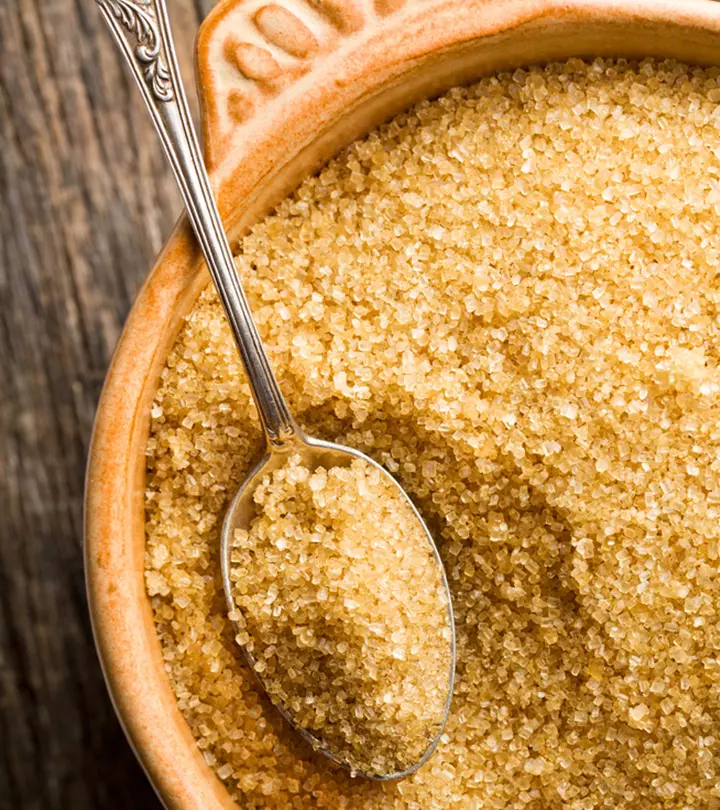


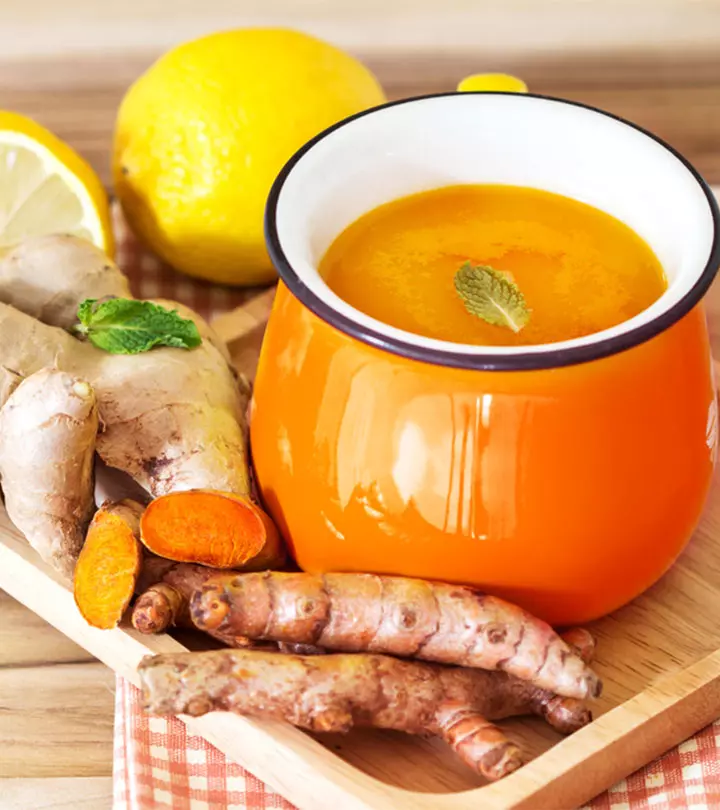
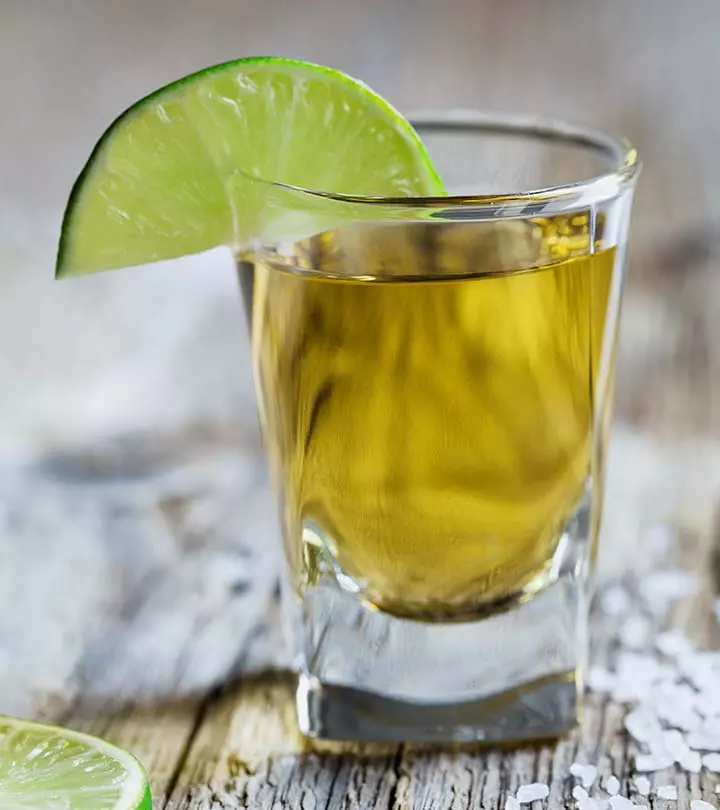
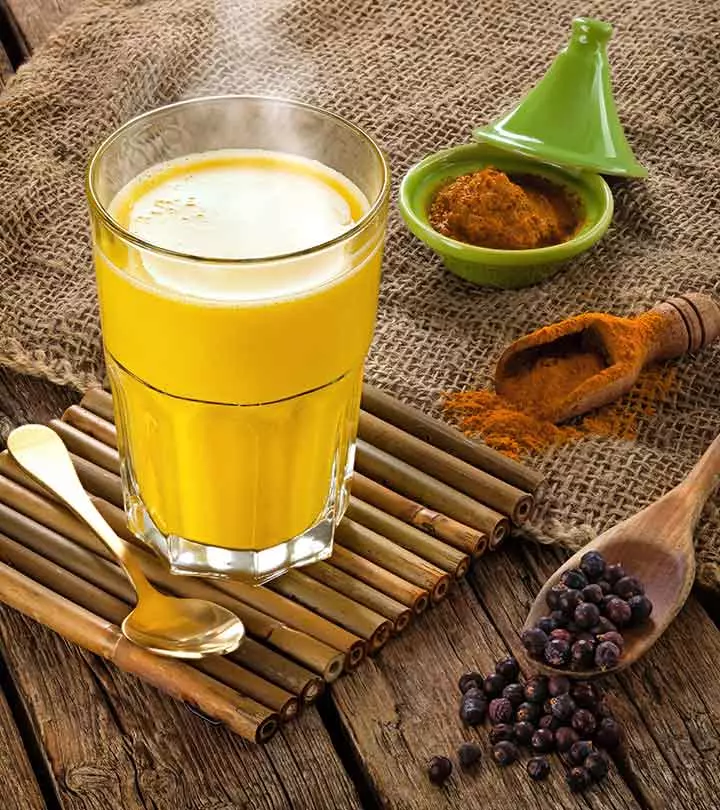
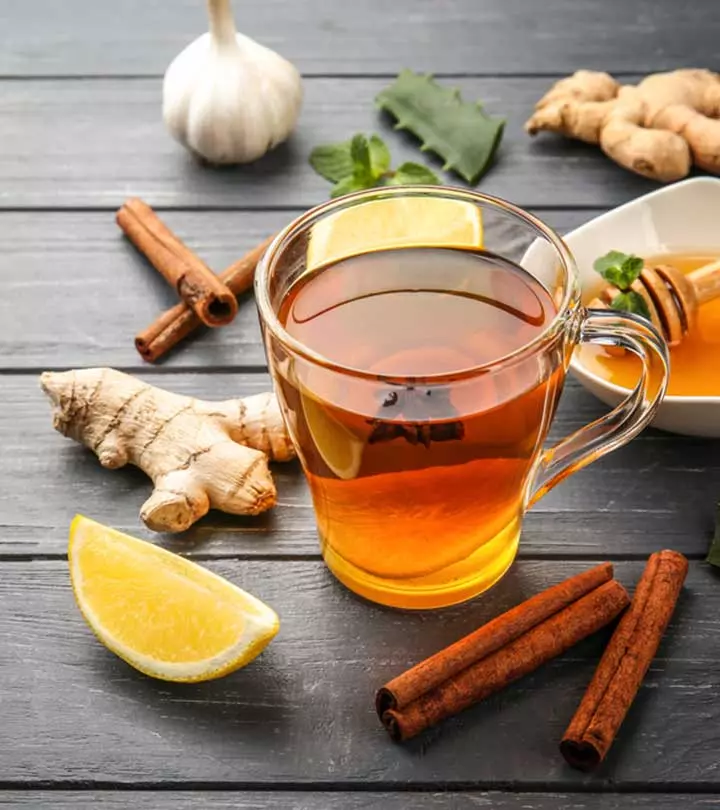



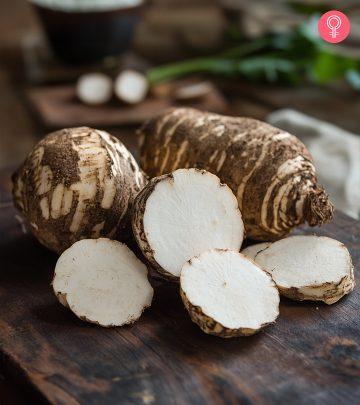

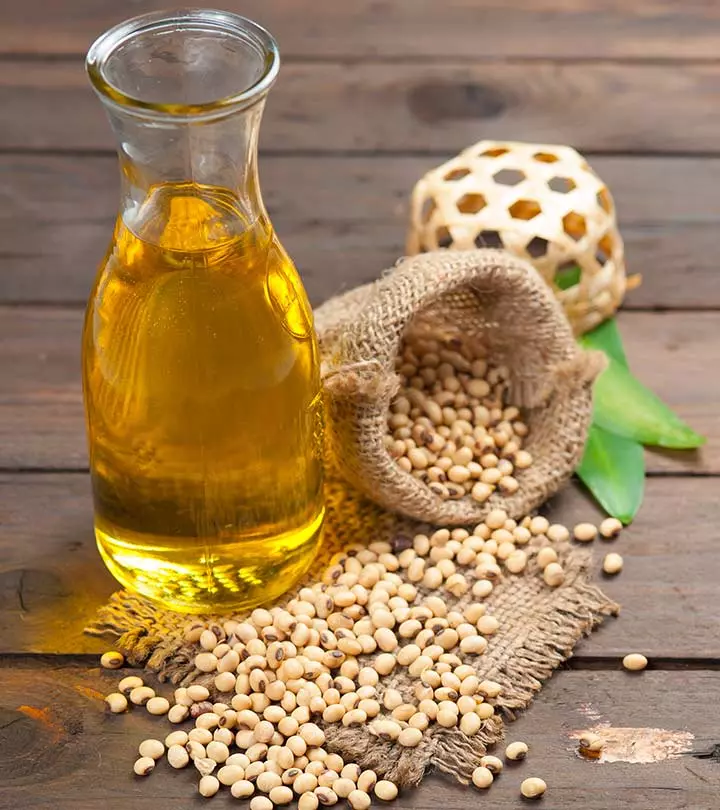





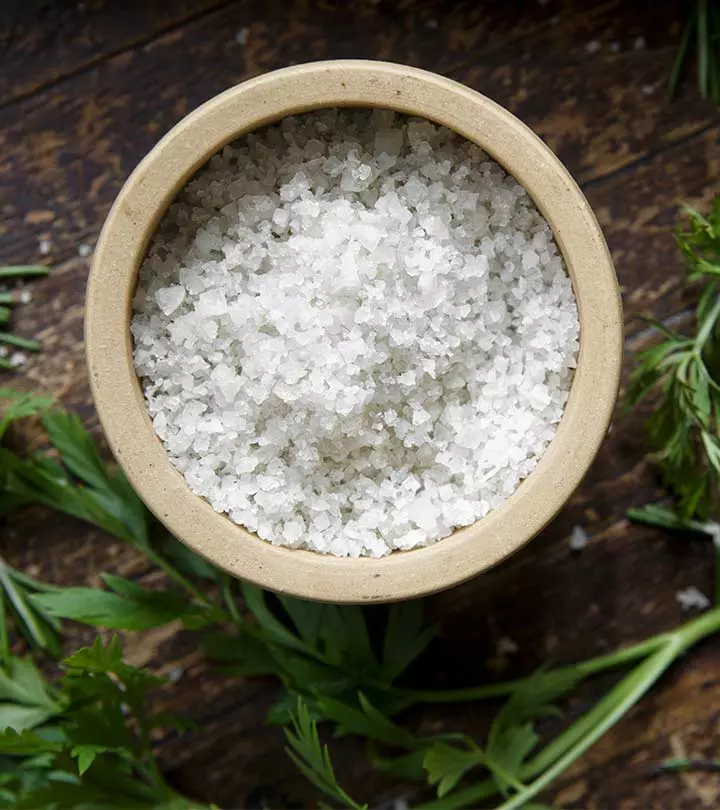

Community Experiences
Join the conversation and become a part of our empowering community! Share your stories, experiences, and insights to connect with other beauty, lifestyle, and health enthusiasts.